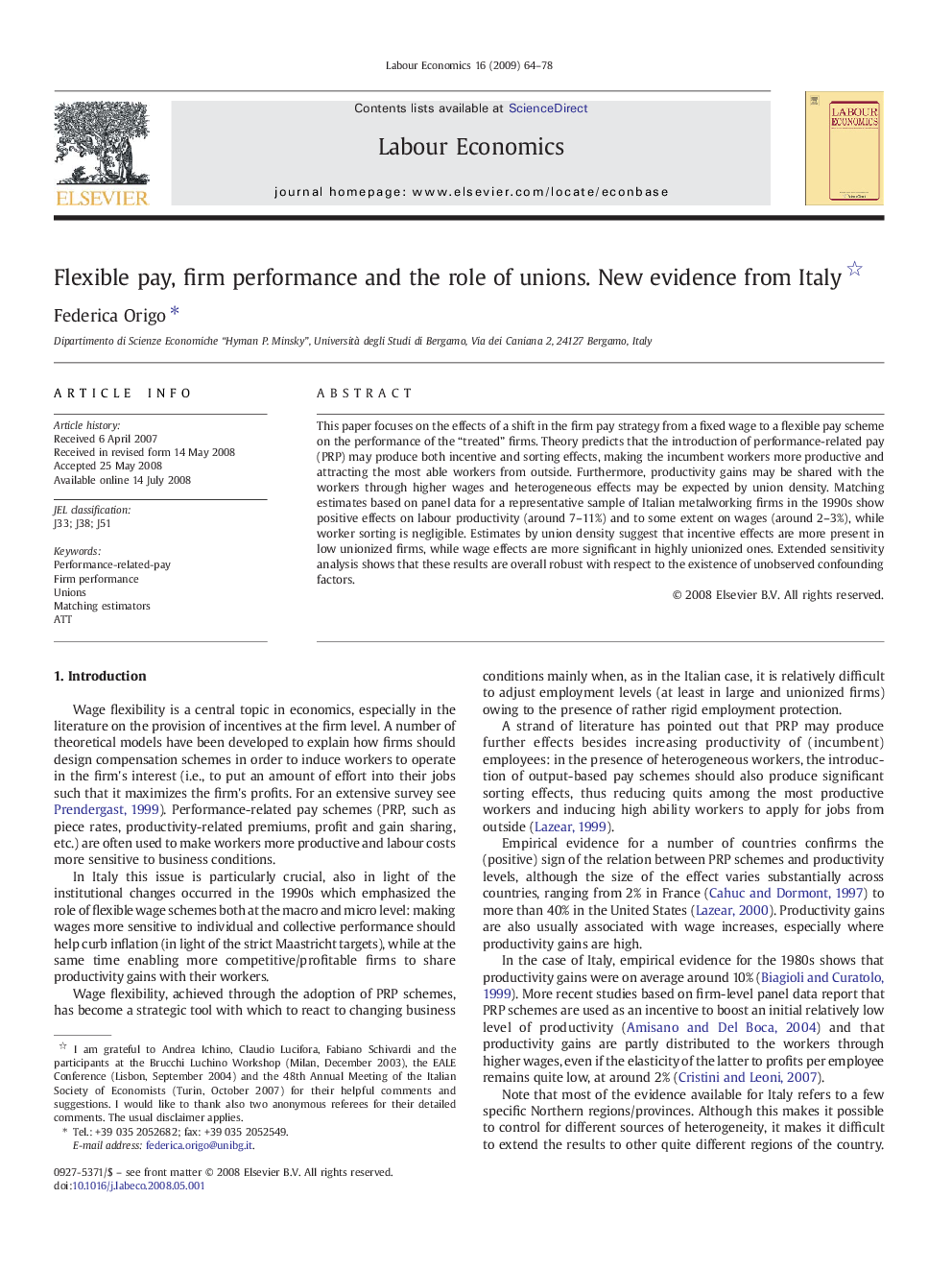| Article ID | Journal | Published Year | Pages | File Type |
|---|---|---|---|---|
| 972249 | Labour Economics | 2009 | 15 Pages |
This paper focuses on the effects of a shift in the firm pay strategy from a fixed wage to a flexible pay scheme on the performance of the “treated” firms. Theory predicts that the introduction of performance-related pay (PRP) may produce both incentive and sorting effects, making the incumbent workers more productive and attracting the most able workers from outside. Furthermore, productivity gains may be shared with the workers through higher wages and heterogeneous effects may be expected by union density. Matching estimates based on panel data for a representative sample of Italian metalworking firms in the 1990s show positive effects on labour productivity (around 7–11%) and to some extent on wages (around 2–3%), while worker sorting is negligible. Estimates by union density suggest that incentive effects are more present in low unionized firms, while wage effects are more significant in highly unionized ones. Extended sensitivity analysis shows that these results are overall robust with respect to the existence of unobserved confounding factors.
